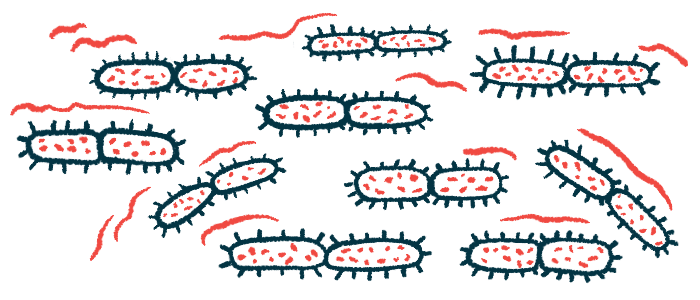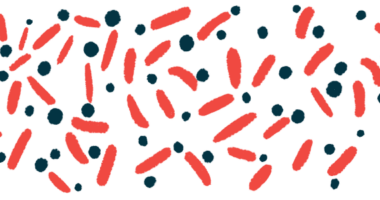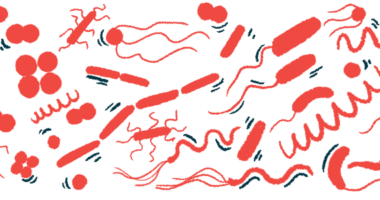Scorpionfish protein may treat antibiotic-resistant infections
People with CF have self-reactive antibodies that destroy human BPI

A protein from scorpionfish might combat antibiotic-resistant bacterial infections in cystic fibrosis (CF) patients, a recent study suggests.
The human version of the protein, called bactericidal/permeability-increasing protein (BPI), normally works to fight off bacteria, but people with CF have self-reactive antibodies that destroy it.
In lab studies, the scorpionfish version could escape the antibodies and efficiently killed off Pseudomonas aeruginosa, a common infection-causing bacteria in CF.
“If proven effective in animals and people, nonhuman BPI may provide new therapeutic options for difficult-to-treat bacterial infections,” Sigrid Bülow, MD, the study’s senior author, said in a press release. Bülow is a microbiology specialist at the Institute of Clinical Microbiology and Hygiene, University Hospital Regensburg, Germany.
The study, “Scorpionfish BPI is highly active against multiple drug-resistant Pseudomonas aeruginosa isolates from people with cystic fibrosis,” was published in eLife.
Overcoming antibiotic resistance
The thick, sticky mucus that builds up in the lungs of people with CF is a breeding ground for bacteria, meaning patients are particularly susceptible to lungs infections such as those caused by P. aeruginosa.
“In these cases, patients need continuous antibiotic treatment, which often leads to the development of multiple-drug resistance,” said Jonas Holzinger, a biologist at the University Hospital Regensburg and the study’s first author. “In consequence, therapeutic options are drastically limited and there is an urgent need for new approaches.”
Antibiotic resistance means bacteria have developed defenses that make them resistant to being killed off by available antibiotics. This is particularly likely when they’ve been repeatedly exposed to them.
People and animals naturally produce BPI, which can destroy Gram-negative bacteria, a family of bacteria that includes P. aeruginosa that are particularly resistant to antibiotics.
Many patients have self-reactive antibodies that inactivate BPI, however, further limiting their ability to fight off infections, leading scientists here to ask if versions of BPI from other distantly related species could kill bacteria in people with CF.
The rationale is that because those versions of BPI are not structurally the same as the ones produced by humans, they might avoid destruction by anti-BPI antibodies.
The scientists examined BPI from mice, scorpionfish, and oysters, based on certain selection criteria.
Among blood samples from 39 CF patients, 51% showed evidence of anti-BPI antibodies.
Lab experiments revealed BPI from scorpionfish and mice didn’t contain the part of the protein sequence that would be needed for these antibodies to bind, meaning they could escape detection from patients’ anti-BPI antibodies.
The BPI from the scorpionfish had the highest anti-inflammatory activity in human cells and had a potent ability to destroy Gram-negative bacteria.
“When we compared scorpionfish BPI to those of other organisms, we discovered its exceptional activity against Pseudomonas aeruginosa,” Holzinger said. “Scorpionfish BPI also worked impressively fast, killing the bacteria within one to three hours.”
The scorpionfish BPI was found to bind to and destroy the rigid wall that gives bacteria their structure. That’s different from how common antibiotics work, which prevent the bacteria from replicating their DNA or synthesizing proteins.
What if antibodies develop against scorpionfish BPI?
While promising, using scorpionfish BPI therapeutically could be limited if patients were to develop antibodies against it with repeated treatment, the researchers said. “Therapeutic use may rather be indicated in short-term settings,” they wrote.
More preclinical studies are needed to confirm whether the approach is viable. They should include CF animal models to determine if scorpionfish BPI can actually fight infections in the lungs.
“Further investigations … are highly encouraged to develop novel therapeutics against Gram-negative [multiple drug-resistant] infections,” the scientists wrote.
Beyond CF, the discovery of scorpionfish BPI could have significant implications.
“Developing nonhuman BPI therapies may benefit not only patients with cystic fibrosis but others impacted by severe infections with multiple drug-resistant Gram-negative bacteria,” Bülow said.








